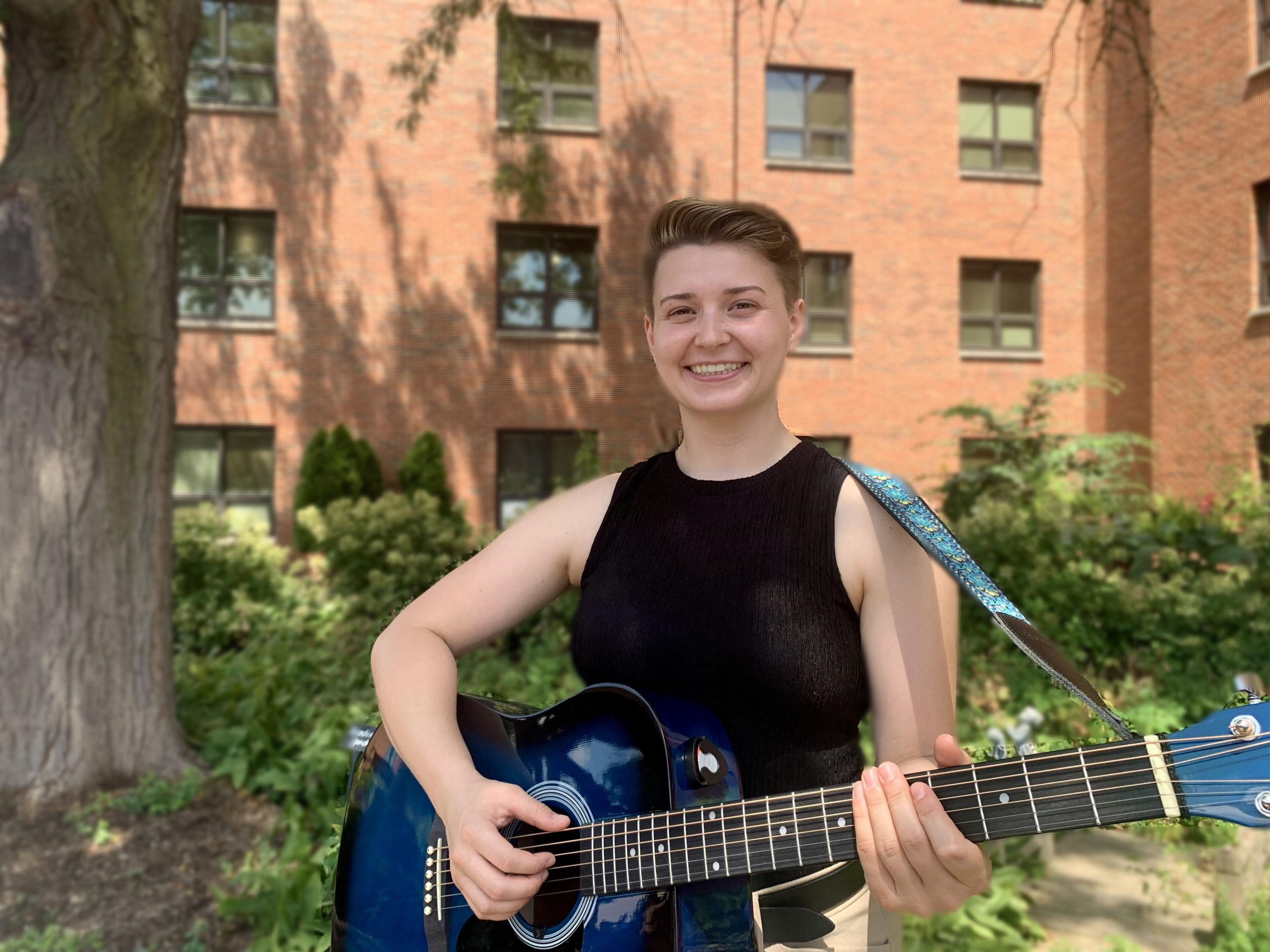
Music in all its forms is a huge part of daily living at the DuPage Care Center—and an important factor in improving the quality of the individuals who reside here. Step onto a Care Center neighborhood any given day of the week and more than likely you will hear it. The sounds of an old favorite tune as a life enrichment aide leads residents in karaoke… The stirring drone of bagpipes from a guest performer in the RDR… The simple strumming of a guitar, accompanied only by the light jangle of a tambourine and a single voice.
Wherever you find it, music makes the Care Center feel more like home. But it does more than just that. It’s also a powerful tool for promoting mental wellness among Care Center residents and for restoring in them a sense of personhood.
For the last few years, the DuPage Care Center Foundation has partnered with Music Speaks to make this life-changing service available to Care Center residents. And Julia, one of Music Speaks’ talented, passionate therapist, has become a familiar presence for many.
Julia’s interest in music therapy began in high school, when she’d already witnessed firsthand the incredible impact music could have on people. She remembers a Christmas family gathering when this became especially apparent. While Julia and her cousin played carols in the living room, their Auntie Marge walked in and took a seat at the piano, joining in on the performance. Auntie Marge had been living with dementia.
Julia was dumbfounded. “I looked at my cousin like, ‘Did you know that?!’ And he’s like, ‘No, did you?!’ And while we sat trying to figure out the next carol to play, [Auntie Marge] is playing another one from memory. It just all came back to her,” she says, “and she started playing. It was amazing to see.”
That memory became foundational for Julia. After her Auntie Marge passed away, Julia became determined to train as a music therapist. She learned the guitar and, when she had free time, played for her grandfather. It was in those moments with her grandfather that she became convinced that this was more than just a career; it was a passion.
Julia became a licensed music therapist in 2023 and joined the staff of Music Speaks shortly thereafter. In her current role, Julia spends a day and a half each week at the Care Center, conducting group music therapy in addition to more personalized one-on-one sessions. In those sessions, she’s seen many residents experience transformations of cognitive function, alertness, and mood.
Thinking back on those transformations still fills her with awe. She recalls one resident with markedly diminished alertness. “I was in the room with her, but I don’t think she was aware of it,” Julia says. After a few meetings Julia hadn’t noticed much change. Even so, she kept showing up, making slight adjustments in her approach. Before long, she says, “I started getting reactions out of her that I would have never expected. I gave her a tambourine, and as soon as I put it in front of her, she goes, ‘Wow, this is beautiful.”
Little by little, as she continued to meet with her, the resident’s awareness increased, making little improvements each time—shaking the tambourine, tapping it in time with Julia’s guitar, and eventually, singing.
“It’s not that she wasn’t eligible for music therapy,” Julia says. “I just wasn’t doing it the right way. And when I figured it out, it was really, really amazing.”
Julia makes a difference in lives well beyond the walls of the Care Center, taking her expertise to a nearby inpatient mental health facility, a group home for adults with disabilities, and a high school special education program. No matter where she goes, the results are just as inspiring.
“Seeing the progress I make [at the Care Center] and all my other placements,” she reflects, “just seeing how different people from different walks of life all interact with the music—it makes me happy to be able to bring what I love to the people I meet. The human-to-human connection is really the best part of the job.”
